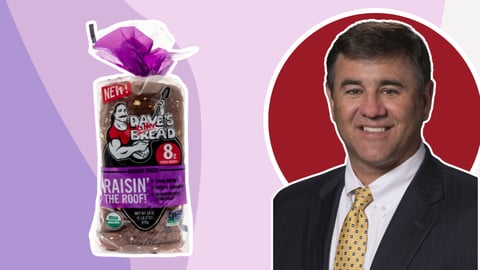Economic Realities Spark Change in Business Strategies For CPG and Retailers: EY
It’s no secret that 2023 was a challenging year for CPG and retail, and leaders are looking to tech to help weather the storm in 2024 – while also considering strategic changes in business direction.
Almost half of CPG and retail executives (48%) say the current economic environment has changed their business strategy, according to a new pulse survey from EY.
Under this pressure, CPG and retail executives have intensified their focus on internal cost optimization and revenue growth management, and over half (51%) are hoping to leverage artificial intelligence and machine learning to streamline processes and boost efficiencies.
Leaders are also looking at supply chain optimization, alternative revenue streams, and industry convergence to drive growth and better meet evolving consumer demands.
The poll, which gathered insights from over 250 retail and CPG industry leaders, found that 53% feel that economic and inflationary pressures, as well as keeping pace with constantly changing consumer preferences, are among their top three pressures keeping them up at night. Another 51% say profitability and margin pressures are a key source of anxiety.
“From Cost to Value”
Retail and CPG execs aiming to become more efficient through tech investment is nothing new. However, there appears to have been a tempo shift in expectations around ROI for these investments, and the EY research suggests leaders will be homing in on safer, value-creating bets in 2024.
“The last year has been challenging for consumer leaders, but in 2024, I think we’re going to see a swing from cost to value,” said Kathy Gramling, EY Americas consumer industry markets leader. “Brands and retailers will look to make smart, strategic investments in areas where value is created.”
Many of the executives surveyed expect this value to come from transformation in finance (27%), technology (26%), supply chain (26%) and customer experience (25%).
Supply Chain’s Starring Role
Supply chain transformation has become a key strategy enabler in recent years. According to the survey, 40% of retail and CPG leaders say creating a more efficient supply chain is a core part of their business strategy, second only to direct-to consumer/omnichannel (42%).
Another 35% say supply chain resilience in their top three areas to invest most in the next year. When it comes to technology, 21% say digital supply chain is where they plan to increase investment, ranking only behind AI/ML (31%)
Tyson Foods is just one many CPGs and retailers looking to foster a more connected, end-to-end supply chain ecosystem. In a recent conversation with CGT, Adam Clark, Tyson’s VP of IT business shared services, outlined how it is using control tower capabilities for supply chain logistics and inventory management to generate automated, near-real-time insights that are easy to consume, actionable, and used to fuel decision-making.
P&G has also worked to expand its collaborative abilities, launching a supply chain services platform for retailers to increase collaboration, sustainability, and competitiveness
GenAI-Driven Growth
In news that won’t come as much of a surprise, the vast majority (99.6%) of executives say they are experimenting with AI.
Breaking it down to the use case level, more than 2 in 5 leaders (41%) say their company is implementing AI in the consumer experience through employee virtual assistants.
Kraft Heinz is one of the most recent adopters of gen AI for this purpose, detailing at NRF 2024 that it is building an internal generative AI app, KraftGPT, for employees to obtain quick insights into product sales.
CPGs such as Colgate-Palmolive and Johnsonville have also taken strides in developing genAI copilots for their organization.
In addition, almost a third (32%) of respondents say they are implementing the technology for product purchase reminders.
Unilever is just one CPG giant tapping into similar tools, rolling out a frictionless, digital app that allows retailers to easily stock up on ice cream whenever needed, based on out-of-stock detection, location data-optimized delivery, and real-time inventory insights.
Of the companies experimenting with GenAI, 29% say they are doing so to remain on the cutting edge of innovation.
- Key Findings From EY's Consumer Products and Retail Executive Pulse
- A majority (65%) of consumer products and retail executives plan to make significant investments in industry convergence or alternative revenue streams.
- Economic and inflationary pressures, along with changing consumer preferences, are among the top concerns for 53% of leaders, while 51% cite profitability and margin pressures as sources of anxiety.
- 99.6% of executives are experimenting with AI (GenAI), and 91% plan investments in alternative revenue streams.
- Executives expect value creation from transformations in finance (27%), technology (26%), supply chain (26%), and customer experience (25%).
- Nearly half (48%) of executives state that the current economic environment has changed their business strategy, leading to increased focus on internal cost optimization and revenue growth management.
- AI and ML are key focuses, with 90% of executives planning to increase investment in IT or emerging technologies. Additionally, 41% are implementing AI into consumer experiences.
- 40% of leaders prioritize creating a more efficient supply chain, and 35% plan to invest significantly in supply chain resilience. Digital supply chain investment ranks behind AI/ML investment.







